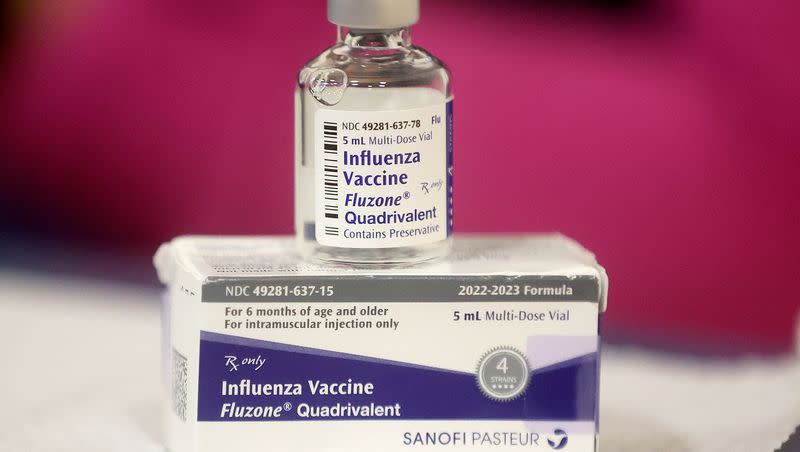Worried about long COVID? According to new study you can get long cold too

If you thought cold and flu season couldn’t get any worse, unfortunately, you were wrong. A new study published in Lancet’s EClinicalMedicine journal led by Queen Mary University of London found evidence of a “long cold” in its research.
Following the COVID-19 pandemic, scientists have devoted research and studies to long-lasting and even new symptoms people experienced weeks and even months after being diagnosed with COVID-19 — coining the term “long COVID.”
“Limited ability to carry out day-to-day activities because of long COVID symptoms can have a significant impact on quality of life, functional status and ability to work or provide care to others,” the Deseret News previously reported. “Long COVID in U.S. adults has also been associated with lower likelihood of working full time and higher likelihood of being unemployed.”
Why do some people experience prolonged symptoms?
The recent study found that many symptoms of long cold are similar to long COVID. The survey included 10,171 participants: 1,343 individuals experienced a COVID-19 infection, while 472 had a respiratory infection that did not test positive for COVID-19.
Scientists in the study discovered indications of a long cold condition that can occur after being infected by numerous prevalent respiratory pathogens, such as the typical cold viruses and the flu.
Professor Adrian Martineau, who worked on the study, told The Guardian, “Our findings may chime with the experience of people who have struggled with prolonged symptoms after having a respiratory infection despite testing negative for COVID-19 on a nose or throat swab.”
Adding that “Ongoing research into the long-term effects of COVID-19 and other acute respiratory infections is important because it can help us to get to the root of why some people experience more prolonged symptoms than others. Ultimately, this could help us to identify the most appropriate form of treatment and care for affected people.”
What do the symptoms include?
The research found that both people who tested positive for COVID-19 or a different type of infection were “associated with a wide range of symptoms more than four weeks after the acute infection,” according to the study.
Prevention included symptoms that could be a sign you’re experiencing long cold:
Cough.
Fatigue.
Dizziness.
Shortness of breath.
Trouble focusing.
Foggy memory.
Poor sleep.
Hair loss.
lack of taste/smell.
Random sweating.
Rapid hard rate.
Emphasizing that “symptoms around lack of taste and smell, dizziness, hair loss, unusual sweating, heart racing, and memory problems tended to be more common — and more severe — in people with long COVID.”
Focus on your health
It is still uncertain the duration of a long cold compared to long COVID, the study noted. However, the study did express hope that these recent discoveries will drive further research into comprehending, diagnosing and treating post-infection conditions.
Even though there’s more to understand about managing symptoms, the experience with lasting symptoms underscores the importance of addressing lingering symptoms with seriousness.
“People should expect a slow return to normality and not expect to immediately return to full activities immediately after an (acute respiratory infection) from whatever cause,” Dr. Peter Openshaw, who was not involved in the study, told CNN.
“It is important not to ‘belittle the very significant disability that some with long COVID suffer,’” Openshaw added.
In order to prevent the spread of virus, the Health Partnership Clinic recommends these tips to avoid getting sick:
Refrain from touching your face, especially your mouth, nose and eyes, as this facilitates the transmission of viruses.
Stay home if you are feeling sick.
Wash your hands thoroughly and often.
Sanitize surfaces in your home to kill off germs.
Get adequate sleep.
Maintain a healthy diet.

